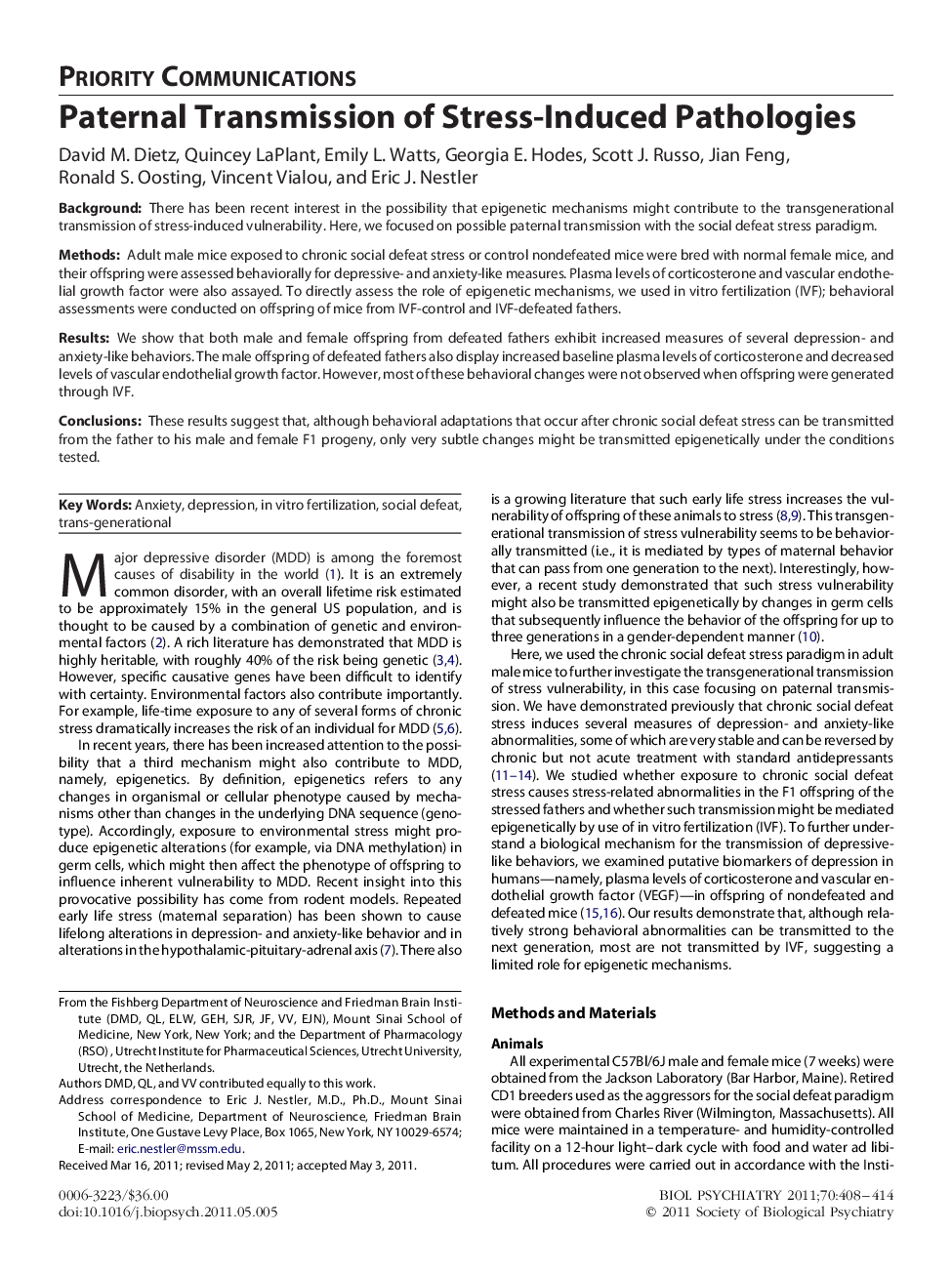| Article ID | Journal | Published Year | Pages | File Type |
|---|---|---|---|---|
| 4178425 | Biological Psychiatry | 2011 | 7 Pages |
BackgroundThere has been recent interest in the possibility that epigenetic mechanisms might contribute to the transgenerational transmission of stress-induced vulnerability. Here, we focused on possible paternal transmission with the social defeat stress paradigm.MethodsAdult male mice exposed to chronic social defeat stress or control nondefeated mice were bred with normal female mice, and their offspring were assessed behaviorally for depressive- and anxiety-like measures. Plasma levels of corticosterone and vascular endothelial growth factor were also assayed. To directly assess the role of epigenetic mechanisms, we used in vitro fertilization (IVF); behavioral assessments were conducted on offspring of mice from IVF-control and IVF-defeated fathers.ResultsWe show that both male and female offspring from defeated fathers exhibit increased measures of several depression- and anxiety-like behaviors. The male offspring of defeated fathers also display increased baseline plasma levels of corticosterone and decreased levels of vascular endothelial growth factor. However, most of these behavioral changes were not observed when offspring were generated through IVF.ConclusionsThese results suggest that, although behavioral adaptations that occur after chronic social defeat stress can be transmitted from the father to his male and female F1 progeny, only very subtle changes might be transmitted epigenetically under the conditions tested.
